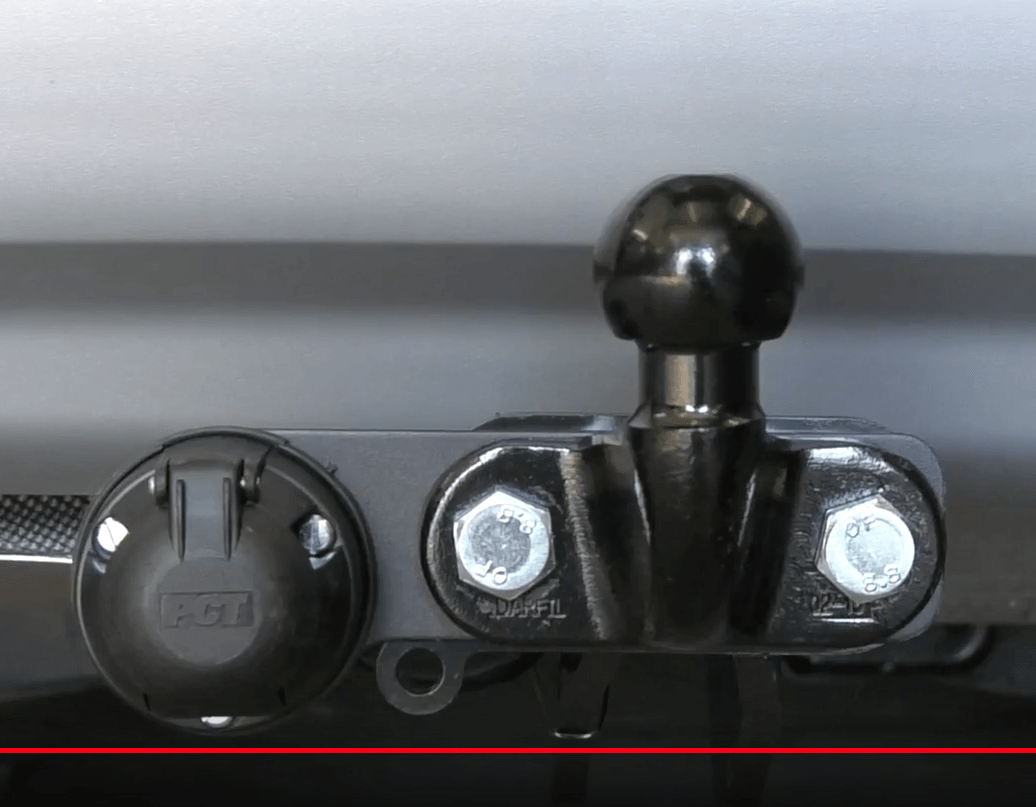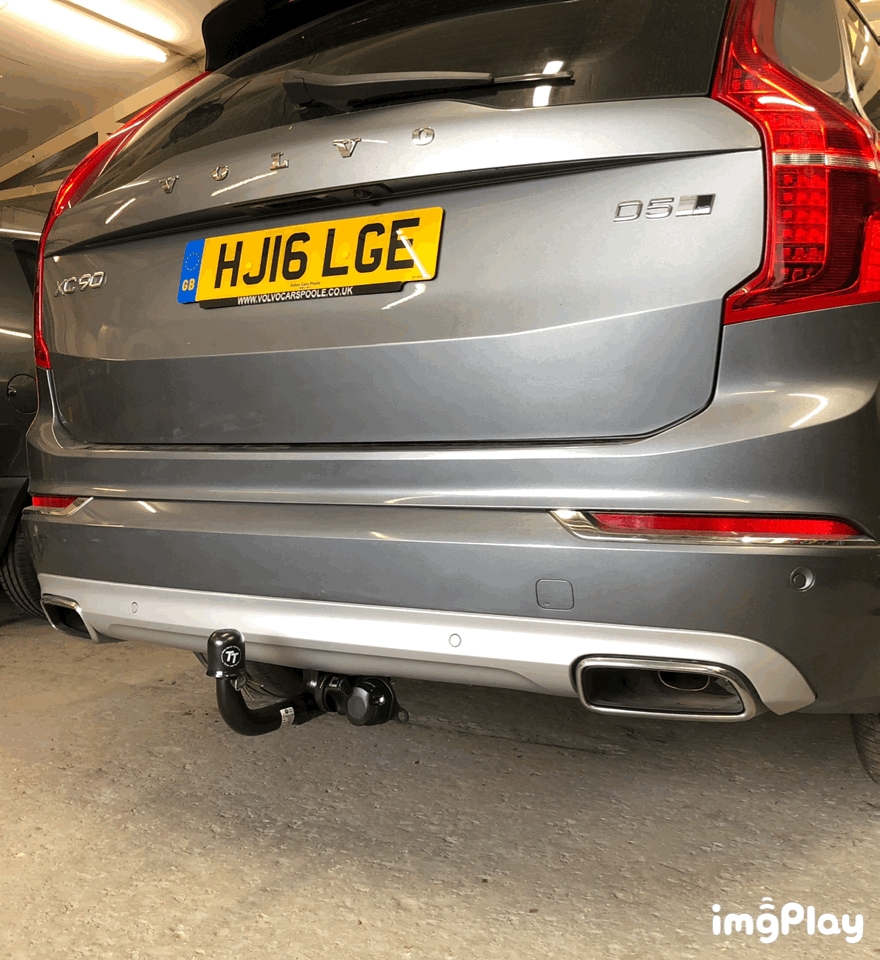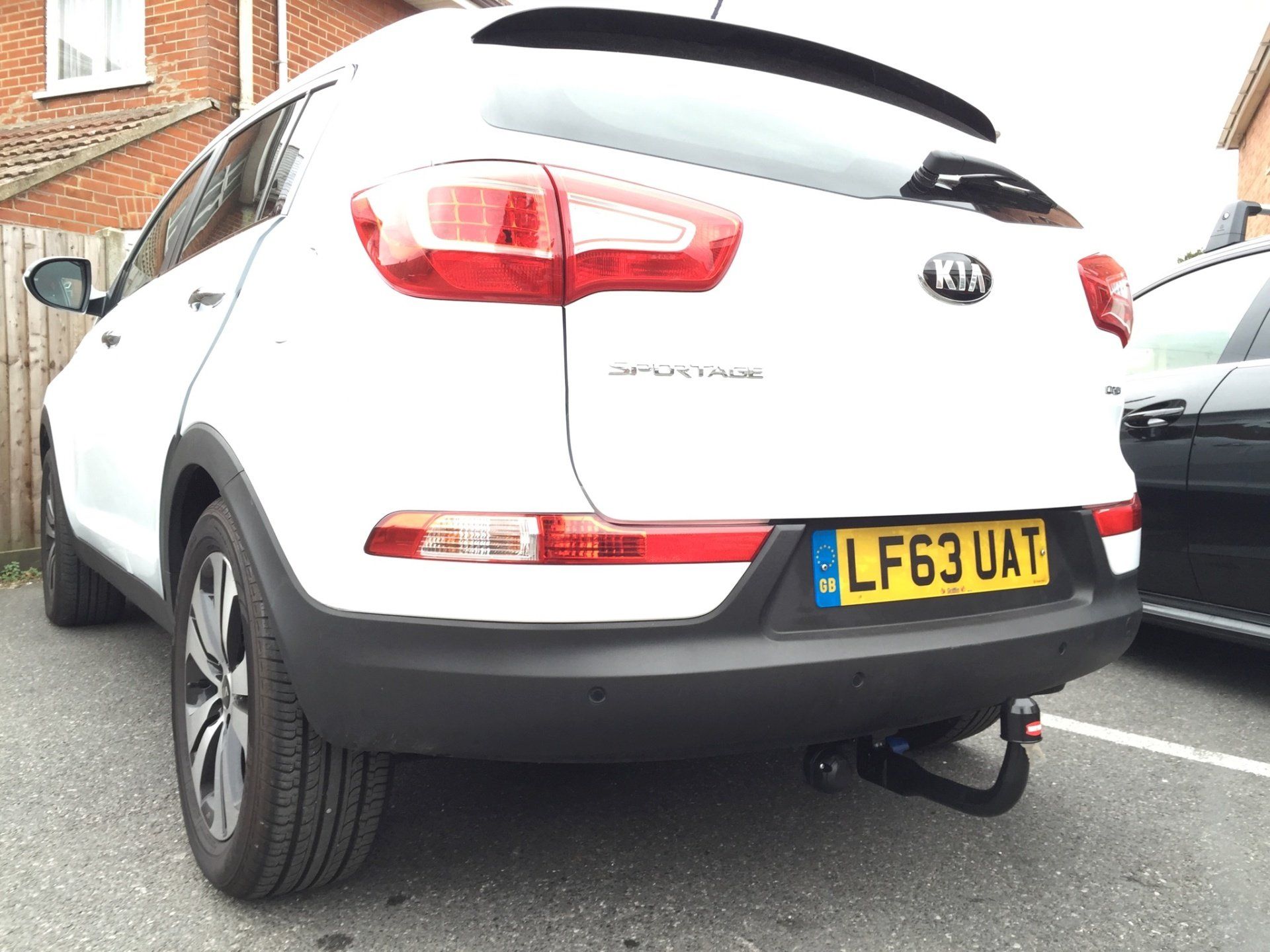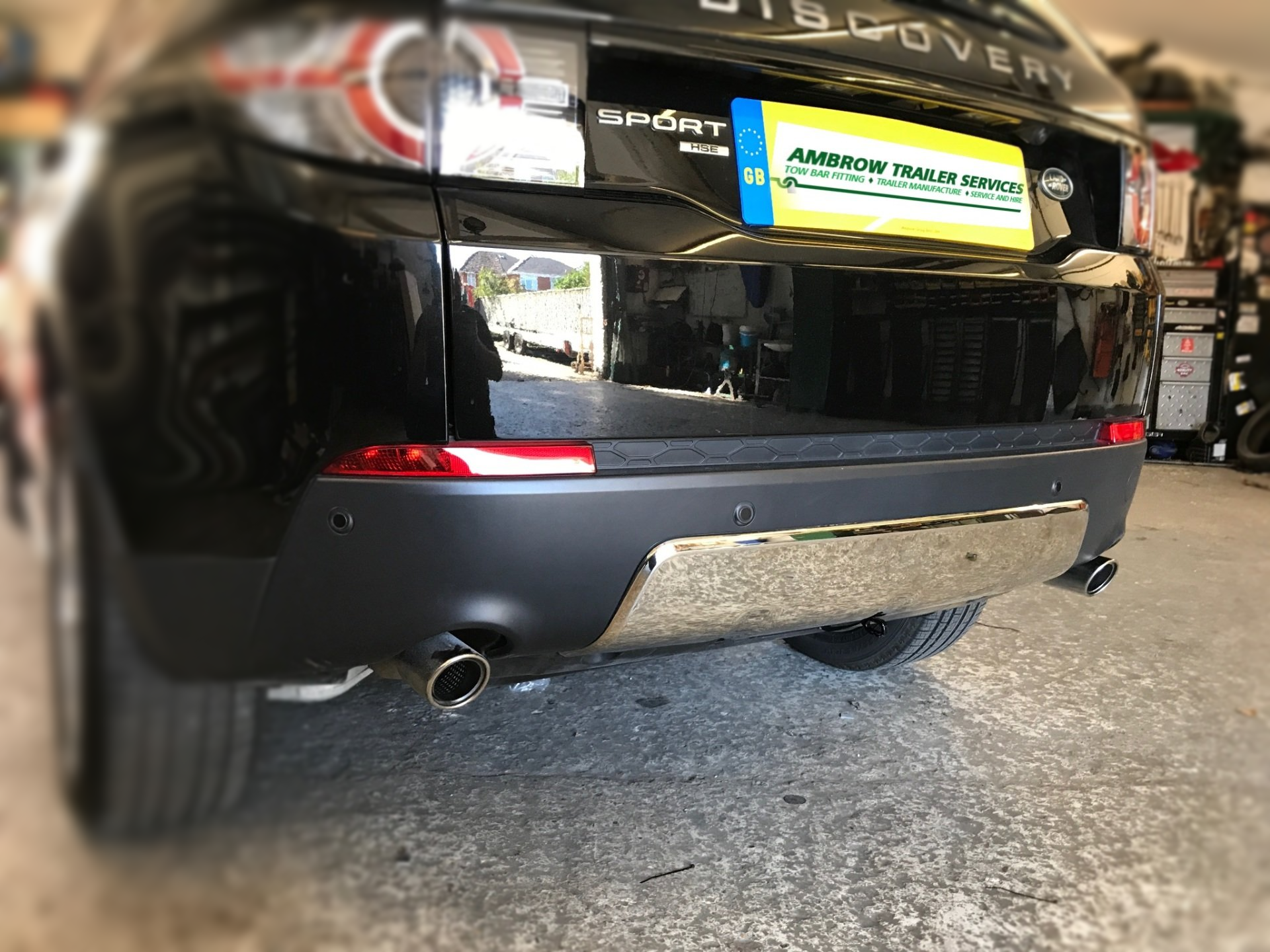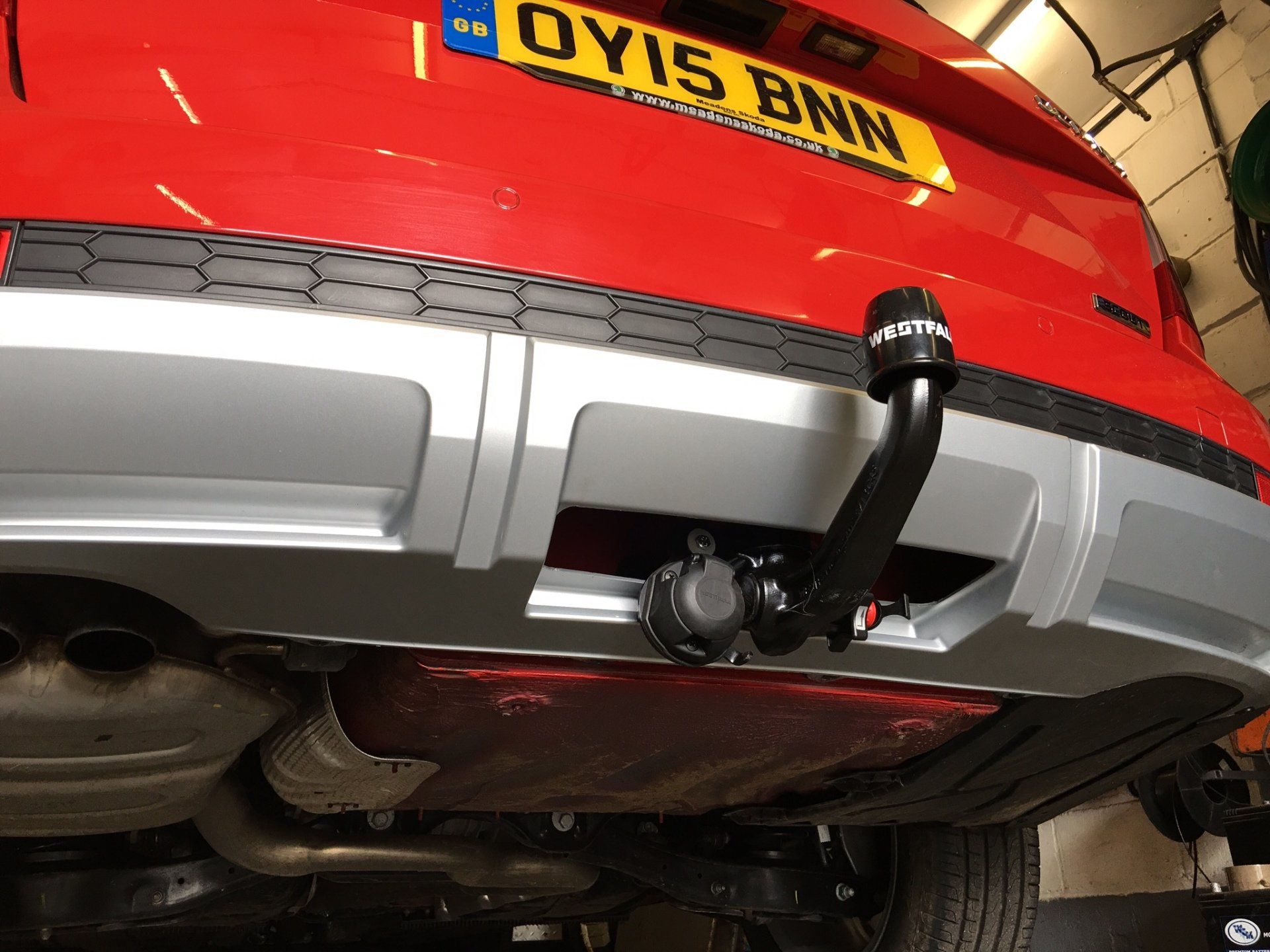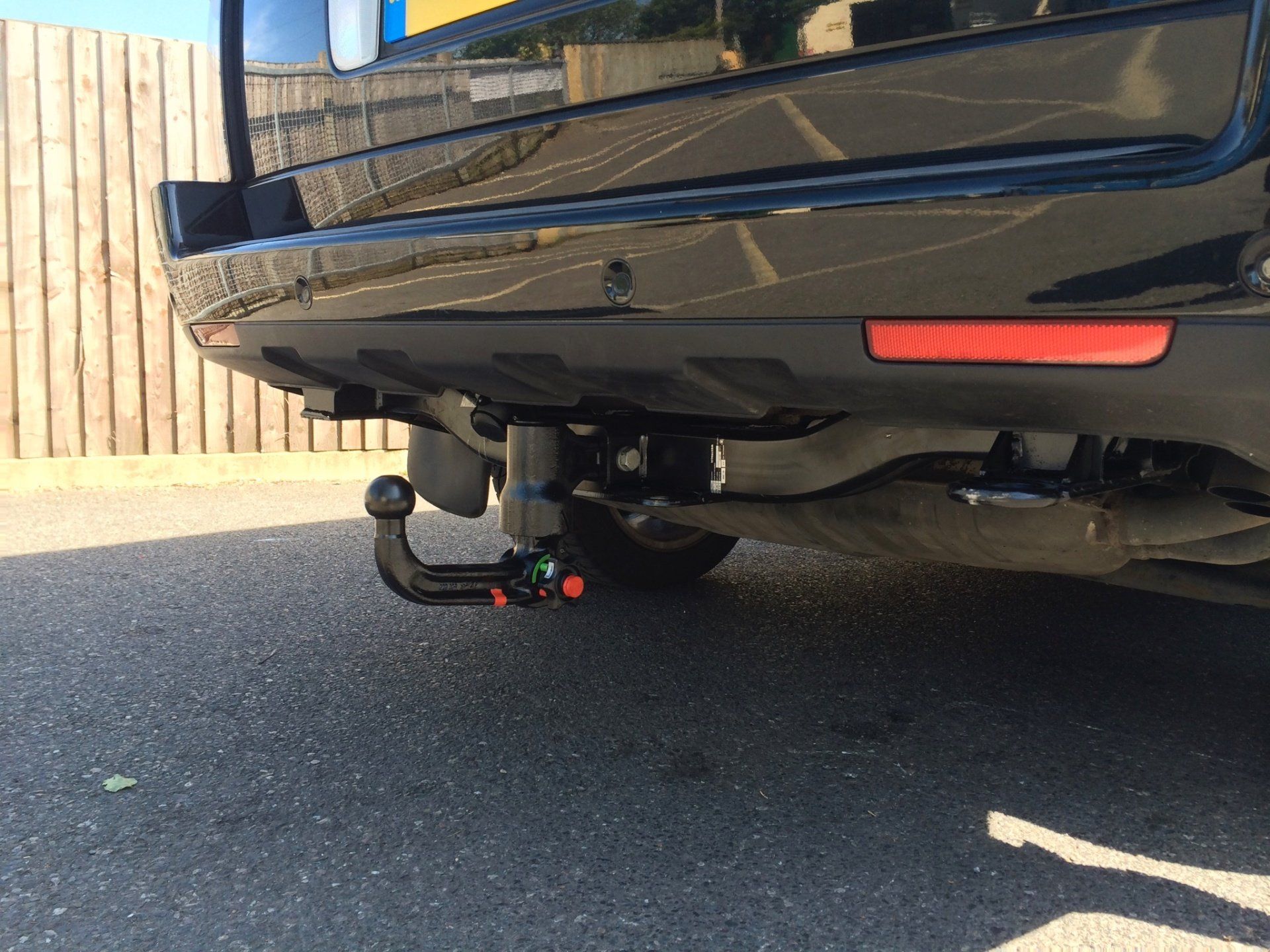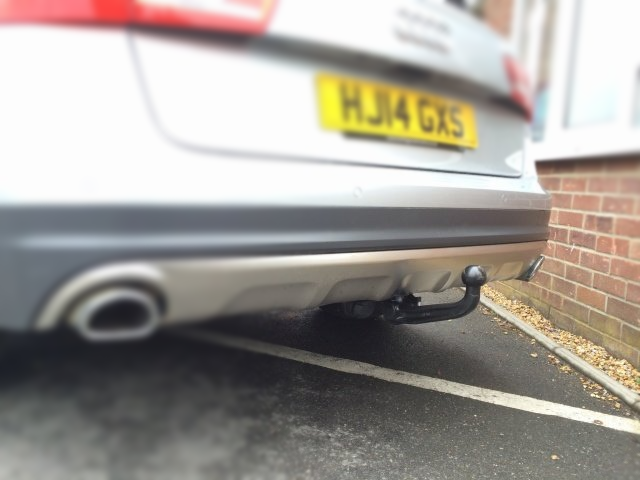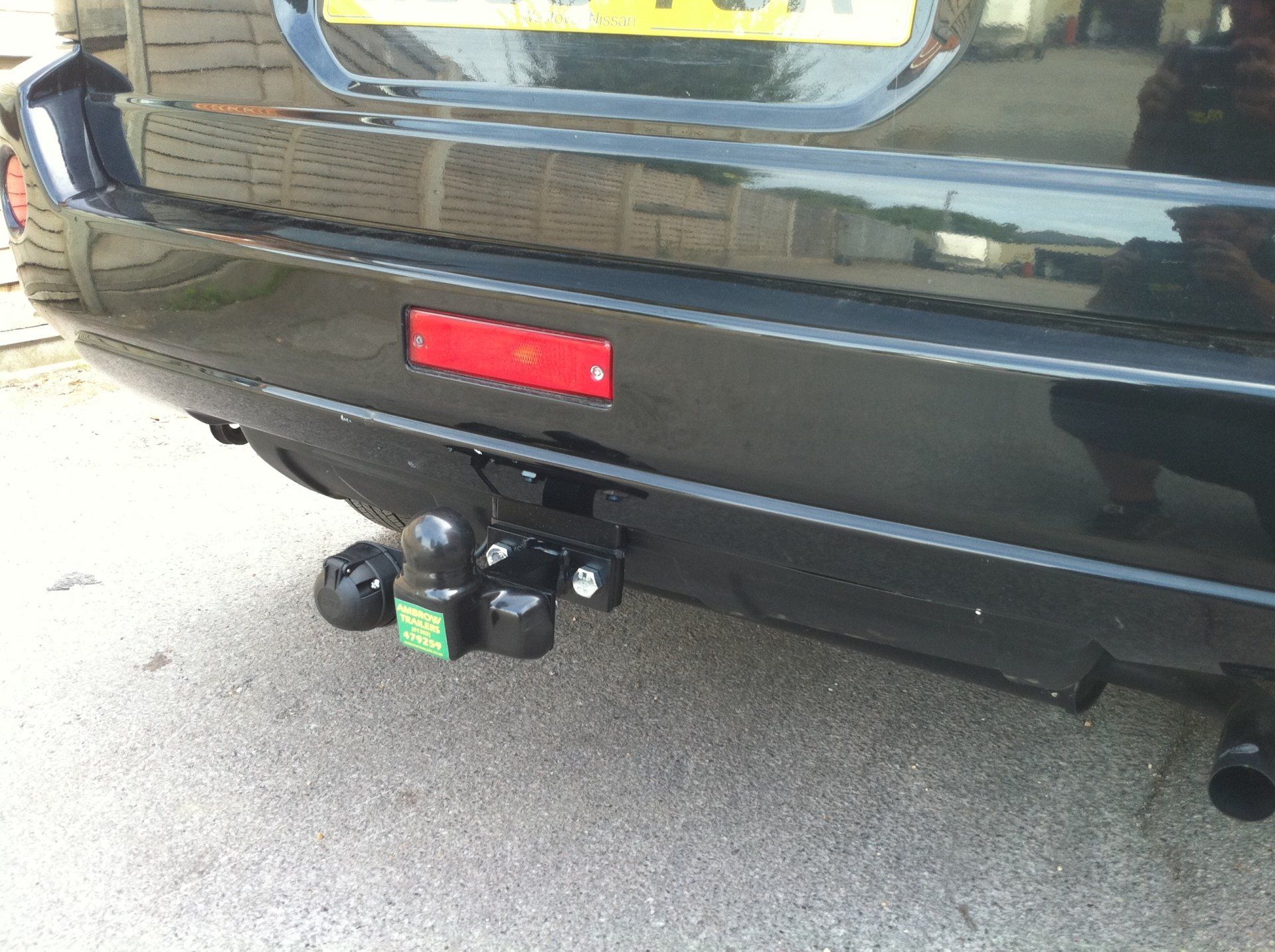Your local quality-assured towbar fitting centre in Dorset
ENQUIRE
Here at Ambrow Trailers we can supply and fit your vehicle with the very best Brand and Quality towbar to meet your budget requirements. We have a long list of towbar suppliers that have been in the trade for many many years, all fully compliant with the industries standards and type approval laws.
Having a Towbar fitted at Ambrow Trailers opens up a new world of exciting possibilities, from caravanning, camping, boating, cycling and watersports. To D.I.Y, garden maintenance, moving a vehicle or moving house. There is no end to the things you can attach to the back of your vehicle.
Ambrow Trailers gives you the added security and follow up service not offered by mobile fitters. We have a fully stocked shop, well equipped workshop and large yard area having been located on Barrack road for 37 years. We are by far the longest established towbar fitting business in the area and are used by most of the reputable motor dealers in the towns,[Christchurch Bournemouth and Poole]as well as local authorities and business's
We have large stocks of towbars on site and if there happens to be a towbar we haven't got, we can have it in stock within 24 hours.
Having a Towbar fitted at Ambrow Trailers opens up a new world of exciting possibilities, from caravanning, camping, boating, cycling and watersports. To D.I.Y, garden maintenance, moving a vehicle or moving house. There is no end to the things you can attach to the back of your vehicle.
Ambrow Trailers gives you the added security and follow up service not offered by mobile fitters. We have a fully stocked shop, well equipped workshop and large yard area having been located on Barrack road for 37 years. We are by far the longest established towbar fitting business in the area and are used by most of the reputable motor dealers in the towns,[Christchurch Bournemouth and Poole]as well as local authorities and business's
We have large stocks of towbars on site and if there happens to be a towbar we haven't got, we can have it in stock within 24 hours.
Towbar Electrics
A thorny issue! All vehicles that tow or carry anything on the back that blocks the vehicle rear lights, Numberplate or reflectors (from directly behind or
an angle) nee d to have fitted, a set of lights and reflectors (like a lightboard). These need to work! To power this the car has a socket that the trailer lights plug in to. This socket duplicates the lighting signal of the car rear lights and allows an external lighting source to be powered from it.
How does it work?
Traditionally all the wiring joins the cars wiring loom at the rear. This is still pretty much the case except that because vehicle electrics have become very much more complicated, (computer controlled CAN-BUS networks on most) newer vehicle electrics have to be protected from overloading. This is done in several ways.
The traditional way is to connect the trailer wiring direct to the vehicle lighting loom. The protection comes from the vehicles own fuse arrangement. If a short circuit occurs then the fuse in the fuse box blows. This method although the cheeper, tends to only be suitable for older vehicles that have a robust existing wiring loom.
Bulb failure
Nowdays, most vehicles have systems that monitor the vehicle lights and if a light fails the driver is informed usually by a signal to the dashboard. [This is often because the electrical resistance has changed]. In this case when another bulb such as a trailer light is attached than the car signals the driver that a lighting fault has occurred.
BYPASS ELECTRICS
To stop this happening we fit a bulb failure bypass system. This completely protects the car from power fluctuations and short circuits in the trailer. This works by monitoring the car lights and then duplicating them to the trailer lights using its own power supply. The car simply doesn't know it is powering trailer lights.
This now has a draw back on most new generation of cars. The bulbs are sometimes powered by a fluctuating current, so that one bulb brightens as needed and performs two tasks. This is covered by a different module.
We now have multiplexed CANBUS electrical systems in vehicles. This is a computer controlled system that usually uses a "plug in" trailer electrics. This system integrates the towing electrics to the cars on board computer. The car then knows that a trailer or lighting board is behind and will sometimes alter some of the braking and suspension characteristics.
Here at Ambrow Trailers we will fit the system suitable for your vehicle with a full choice of solutions for your trailer and caravan lights.
Heres an example of a typical dedicated wiring kit being fitted to a VW T5 transporter...
CAN-BUS wiring looms


